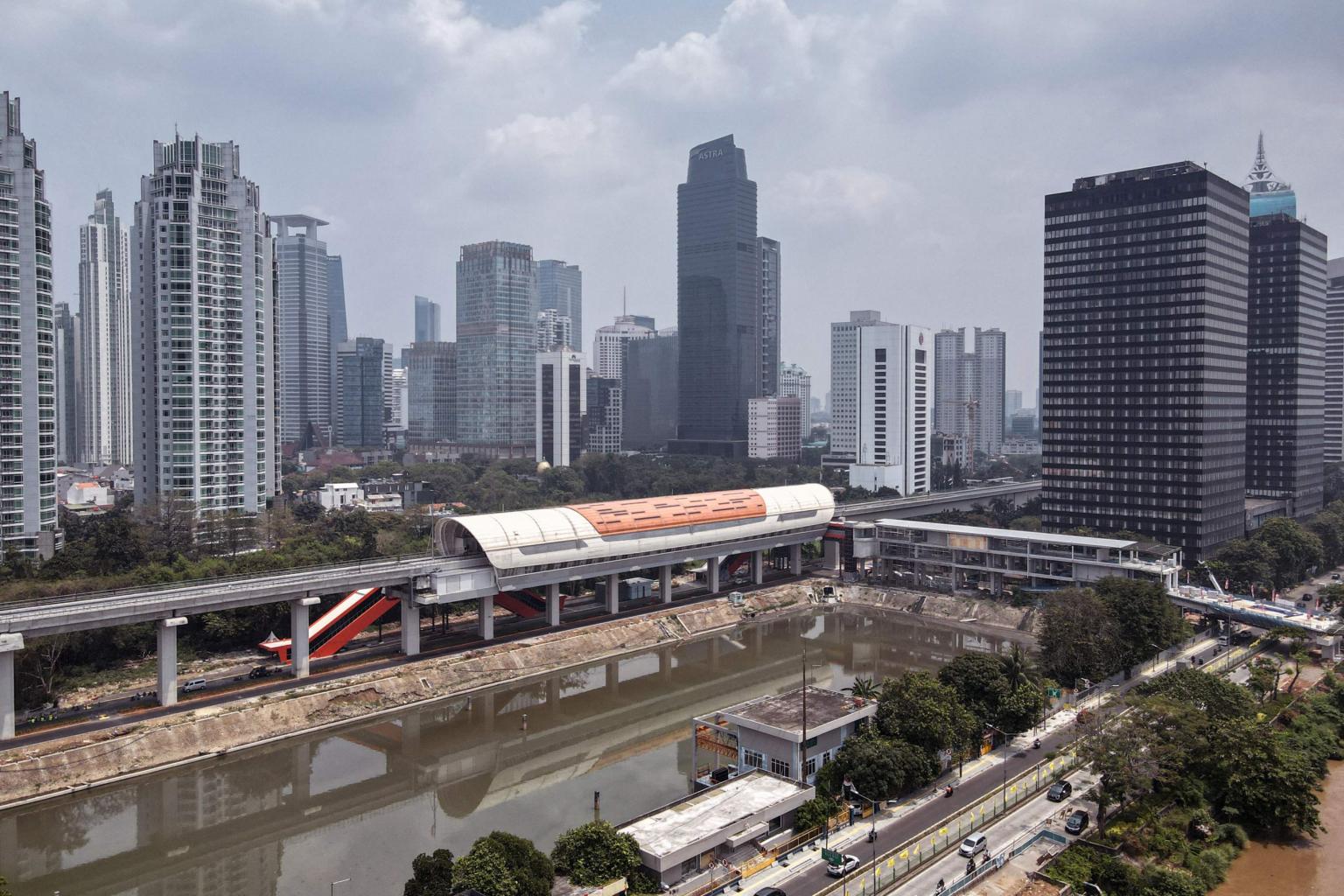Improving public transport has helped Jakarta tackle climate change: Governor Anies Baswedan
Sign up now: Get ST's newsletters delivered to your inbox

Under Jakarta Governor Anies Baswedan's watch, the coverage of public transport in Jakarta has doubled from 40 per cent in 2016 to almost 90 per cent.
PHOTO: AFP
Follow topic:
SINGAPORE - In improving the public transport system in Indonesia's capital Jakarta, its leaders have also sought to address climate change by encouraging residents to ditch their vehicles.
Jakarta Governor Anies Baswedan said work to improve the city's network of buses and trains has also been done with "equal treatment" in mind, in a bid to not add to a problem of segregation between people of different socio-economic status.
He was speaking to about 100 students, academics, diplomats and business leaders at a lecture on Wednesday organised by the Lee Kuan Yew School of Public Policy (LKYSPP) at the National University of Singapore.
Dr Anies, whose five-year term as governor will end next month, is widely seen as a front runner for Indonesia's next presidential election in two years' time.
His speech on Wednesday covered the work that he and his administration have done to better the lives of people in Jakarta.
This includes making public transport more accessible. Under Dr Anies' watch, the coverage of public transport in the city has doubled from 40 per cent in 2016, to almost 90 per cent presently.
But there is a "higher purpose" to improving Jakarta's network of buses and trains, beyond just making sure that traffic in the city - notorious for congestion that can last for hours - flows smoothly.
"We are addressing this challenge of climate change immediately. Why? It's obvious. When you take public transport, then there is less usage of private vehicles, then we are seeing less greenhouse gas emissions," said Dr Anies.
His administration has so far reduced carbon emissions by 26 per cent, just a hair's breadth away from the targeted 30 per cent for Jakarta by 2030.
Jakarta was the first city in the region to receive the globally acclaimed Sustainable Transport Award in 2021, after finishing as the previous year's runner-up.
Levelling up public transport in the city has also managed to address the problem of segregation between people of different socio-economic groups, said Dr Anies.
Jakarta is a city of many different areas, from complex residential areas, business districts with "nice offices", to slums, and he said there has been segregation between these different locations.
There was a need to tackle this issue, and the governor said that when taking public transport, people from all walks of life are treated equally.
He said: "You may be a chief executive officer, you may be a governor, you may be a mayor; but when you enter a Mass Rapid Transit train, when you enter a bus, you will stand on the same line. You will sit on the same chair, you will stand in the same car.
"And there is no business lounge, there is no business class, it's all equal. And in a city like Jakarta, that is a rare experience."
Dr Anies, who arrived in Singapore on Monday and leaves on Friday, is the 72nd Lee Kuan Yew Exchange Fellow (LKYEF) and the fifth from Indonesia. Past fellows include Malaysia's Health Minister Khairy Jamaluddin.
The Ministry of Foreign Affairs (MFA) said on Sunday that during his visit here, Dr Anies will call on Prime Minister Lee Hsien Loong and meet other leaders.
Established in 1991, the LKYEF invites outstanding individuals for high-level visits to Singapore. The fellows are chosen on the basis of their track records and extraordinary potential to contribute to the development of their nations and to bilateral relations with Singapore. These exchanges have helped to promote collaboration and foster meaningful dialogue, and deepen bilateral cooperation, said MFA.
Earlier on Wednesday, Dr Anies had lunch with Deputy Prime Minister and Finance Minister Lawrence Wong.
In a Facebook post, Mr Wong said that apart from engaging discussions on international and domestic developments, the two leaders discussed ways to enhance cooperation and promote people-to-people ties between both countries.

